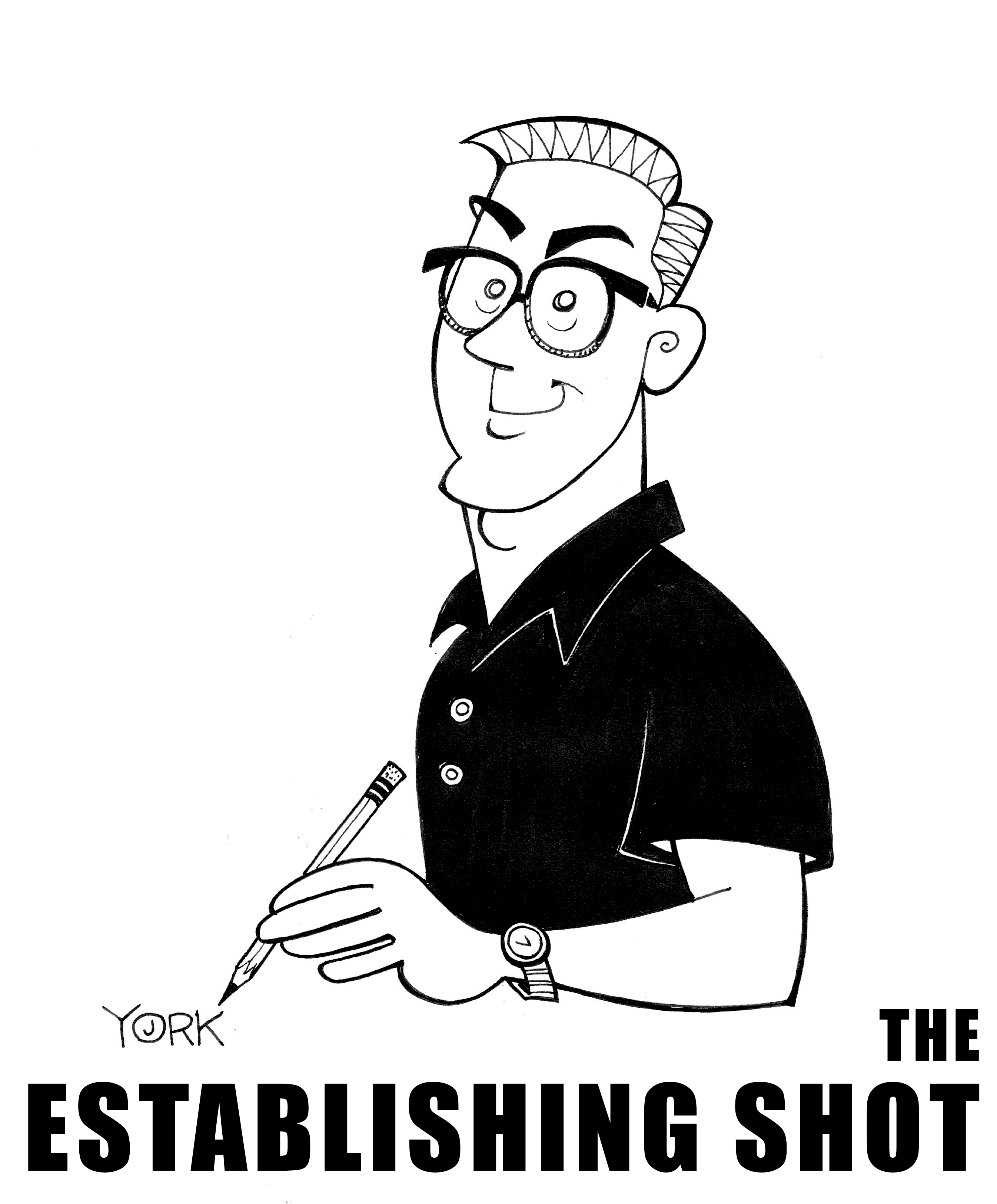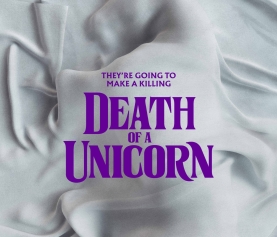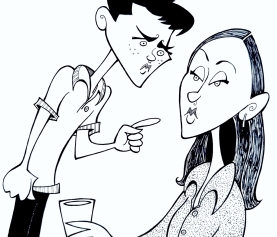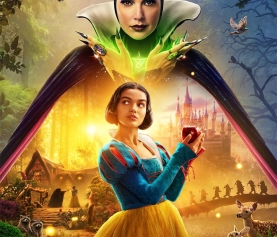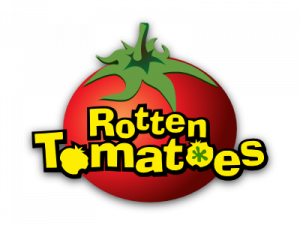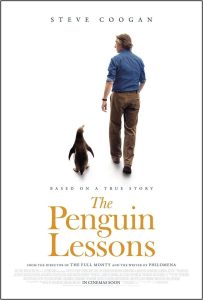
Steve Coogan makes a great grump.
He’s played many malcontents in his day, from the tactless broadcaster in the TV sitcom I’M ALAN PARTRIDGE to the reluctant caretaker of PHILOMENA to his headstrong Stan Laurel in the biopic STAN & OLLIE. He infused the ‘fictionalized’ version of himself in THE TRIP movies with so much crabbiness that somewhere W.C. Fields and Groucho Marx were probably grinning ear-to-ear. Coogan is an expert at playing the arc of a misanthrope who learns to care/feel/see beyond his nose and he’s asked to do so again in the new dramedy THE PENGUIN LESSONS. He’s great. The film…good, but not quite great.
Based on the true story of Thomas Michell, Coogan again plays a crabapple, this time a cynical teacher charged with teaching rich Argentinian boys how to speak the King’s English in 1976. It’s not much of a stretch, but Coogan makes the role work even when the tone of the film around him varies too broadly and the tragedy outweighs its sense of comedy. It’s a heavy lift the veteran performer is asked to accomplish, balancing physical schtick with a penguin while a heavy revolutionary tale unfolds outside your window, but that’s what’s at play here.
Clearly, Buenos Aires is not a place any rational-thinking careerist would choose to call home in 1976, but that’s where Michell finds himself after skipping across South America teaching English to privileged kids. But naturally, the real educational arc here will have less to do with what Michell brings to his students’ lives and what they, that misplaced penguin, and a shifting political climate will all teach him instead.
Still, despite such obvious trajectories, there is a lot to enjoy here even if you can see where all of this is going. The ever-wry Jonathan Pryce plays the head of the school with just the right amount of bemusement. And when Michell saves the penguin from an oil slick on the beach, you know that despite his bitching and moaning, he’ll take to the little fella lickity-split and the creature will be Michell’s ace in the hole to get through to his bratty students. He dubs the penguin “Juan Salvador” and the bird steals every scene he’s in.
What you may be surprised at is how serious the film becomes in its second half, fully embracing the I’M STILL HERE aspects of the revolution story here. They don’t dig heavily into the upheaval of the Peron regime in 1976, but they do enough to cue the sirens, the military presence, and goon squads. It’s very unsettling, even in small doses, and it isn’t long before the unrest affects the school, activist employees like school maid Sofia (Vivian El Jaber) and her comely activist daughter (Alfonsina Carrocio). Not to mention, a triggered Michell.
It’s an uneasy mix, such lightheartedness, and weightiness, but Coogan manages brilliantly with his droll comedic skills blending well with his increasing gravitas as he gets older. Director Peter Cattaneo and writer Jeff Pope let him strut his stuff, but don’t show what potentially could’ve been the most interesting scene in the film – one where Michell was arrested, kept in a cell overnight, and beaten. Instead, we see Michell exiting the government building the next morning, worse for the wear, but nothing is shown or talked about. It’s a huge, missed opportunity, one that would’ve allowed the film to go much deeper in narrative and effectiveness. The film seems to fight itself to not become too heavy and potentially off-putting to a broader audience.
Still, the locations are wonderful, the period production design is clever, and supporting players like Bjorn Gustafsson bring a lot to the party. It’s Coogan, however, who makes this worth heading to the cinema to see. He’s been one of the world’s best comics for 30 years, and since his breakthrough starring role opposite Judi Dench in 2013’s drama PHILOMENA, he’s become a sterling dramatic actor as well. Enough so that while pictures like this are fine, here’s hoping that more filmmakers cast him in far heavier fare. Coogan is excellent here. But he’d be even greater in better material.
